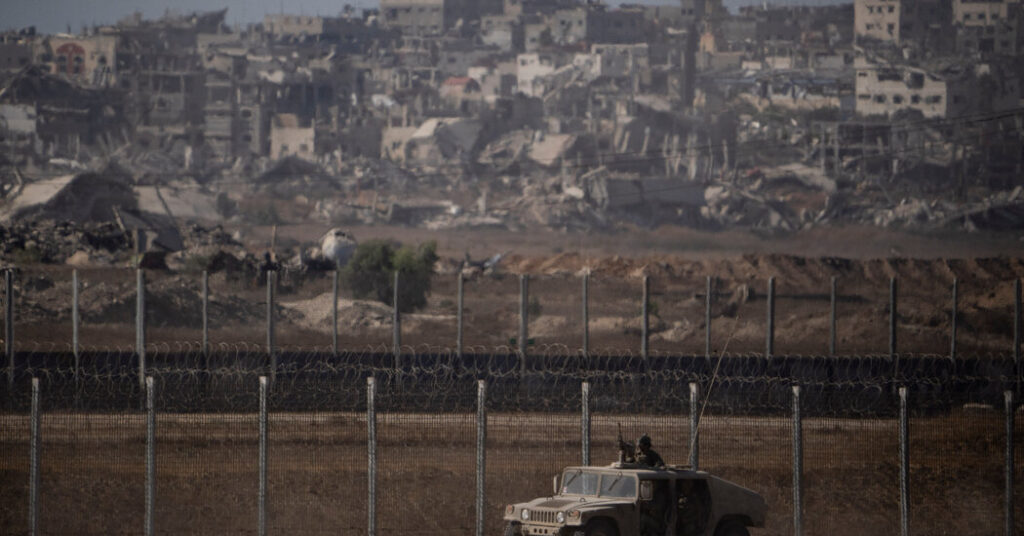Hopes for a ceasefire in Gaza were dashed on Monday after Israeli Prime Minister Benjamin Netanyahu said overnight that he could only agree to a temporary ceasefire with Hamas, which opposes any ceasefire unless it is permanent.
Mr Netanyahu’s statement drew widespread criticism on Monday in Israel, where there is growing support for a ceasefire deal that would involve the release of at least some Israeli hostages still held in Gaza.
The backlash renewed accusations that Netanyahu was putting personal interests ahead of national interests. Netanyahu said it was in Israel’s strategic interest to completely defeat Hamas. But others say the freedom of the hostages is more important and that the prime minister’s main motivation is to avoid the collapse of the government.
The charges are part of a broader controversy over Mr Netanyahu, whose decision to stay in politics in 2020 despite being on trial for corruption has exacerbated deep divisions in Israeli society and sparked years of Political instability.
The country’s military leadership believes that a ceasefire agreement would be the fastest way to free the approximately 120 Israelis still living or dead in Gaza. Recent polls also suggest that a majority of Israelis believe payback for hostages is more important than more fighting in Gaza.
Netanyahu said in a statement on Sunday night that he would only agree to a deal that “allows Israel to resume fighting until all goals of the war are achieved.” The comments reiterated his long-standing position that the war must continue until Israel destroys Hamas’s military and governance capabilities.
However, talks on the deal continued on Monday in Cairo, where Ronen Bar, the head of Israel’s domestic intelligence agency Shin Bet, gathered for talks brokered by the Egyptian government. More discussions are planned later this week in Qatar, another mediator between Israel and Hamas.
In addition to a compromise on the length of the ceasefire, the two sides also need to agree on the number and status of Palestinian prisoners to be used in the hostage exchange. They also need to agree on the extent to which Israeli forces should withdraw from Gaza; Hamas seeks a full withdrawal, while Israel wants to retain control of parts of the territory it occupies.
After months of failed talks, hopes of a deal were revived last week with reports that Hamas was becoming more flexible on key issues, prompting Netanyahu to send negotiators to Qatar.
But Netanyahu’s grip on power relies on the support of two far-right parties that oppose any deal that would give Hamas power in Gaza. Critics say that makes him wary of committing to a hostage-free deal that could collapse his coalition and prompt a snap election that polls suggest he will lose. Mr Netanyahu is currently on trial on corruption charges that he denies, putting his political future at risk if he loses power for the third time in his career.
“The simple truth is this: Benjamin Netanyahu does not want a hostage deal,” biographer Ben Caspit, a prominent critic of the prime minister, wrote on social media. “He may be willing to rescue the hostages, but not at the expense of the well-being of the Alliance. It’s that simple.
Bezalel Smotrich, an influential minister in Netanyahu’s coalition, hinted on social media on Monday that his party could strike a deal if the prime minister reaches a deal that would keep Hamas in power in Gaza. would withdraw from the alliance, underscoring its fragility.
“We will not participate in a surrender agreement to Hamas,” Smotrich said.
“This deal is a failure and a shame for Israel,” Mr Smotrich added.
Some analysts believe Mr Netanyahu may not be personally opposed to a deal but wants to delay it until the end of July, when parliament is out of session, to maximize its chances of success.
Nadav Shtrauchler, a former strategist to the prime minister, said that without the current parliament, lawmakers would find it much more difficult to overthrow the government, giving Mr. Netanyahu more space to strike a deal that his coalition partners might resist.
“He is trying to create wiggle room – and for that he needs time,” Mr Strauchler said.
Mr Netanyahu may also use tough negotiating tactics to force Hamas into greater compromises. Strauchler said Israel’s military operations in the southern Gaza city of Rafah were increasingly weakening Hamas’ position there.
“The military’s efforts in Gaza may help him get more from Hamas,” Mr. Strauchler said.
But critics believe that Netanyahu’s refusal to reach a quick agreement is mainly due to political considerations. Opposition leader Yair Lapid sought to reinforce the idea, offering on Monday a plan to help the prime minister stay in power if the government fell over a hostage deal.
“It’s not right that he has to choose between the lives of the hostages and continuing to serve as prime minister,” Lapid said in a speech. “I promised him a safety net and I will keep that promise. ”
Netanyahu did not immediately respond to Lapid’s proposal, but analysts and the prime minister’s allies said he was unlikely to accept it because he did not trust Lapid’s intentions.
“Lapid will provide a parachute for this particular deal, but 24 hours later he will disappear,” Mr. Strauchler said.
“Netanyahu doesn’t think this is reliable,” Mr Strauchler added.
Gabby Sobelman Reporting from Rehovot, Israel.

